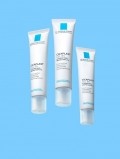Scientists develop sunscreen concept that allows body to produce vitamin D

The findings, published in the peer reviewed journal PLOS ONE, has led to the production of a new sunscreen called Solar D, which is currently available in Australia, and has an expected US rollout in the US later this year.
According to studies carried out by the research team, there are several chemical compounds that are typically used in a sunscreen that efficiently absorb varying wavelengths of UVB radiation.
After removing certain ingredients the researchers compared Solar D, which has an SPF of 30, to a popular commercial sunscreen with the same SPF, and found Solar D allowed for up to 50% more production of vitamin D in-vitro.
"Solar D was designed with compounds with differing filter compositions to maximize vitamin D production while maintaining its sun protection for reducing erythema or burning of the skin," says corresponding author Michael F. Holick, PhD, MD, professor of medicine, physiology and biophysics at Boston University School of Medicine and an endocrinologist at Boston Medical Center.
Holick worked on the project with his colleague Kevin Keane, Dieter Kockott of UV-Technik in Germany, Bernd Herzog of BASF, and Jörg Reichrath from Universitätsklinikum des Saarlandes, Germany.
Best of both…
Sun exposure is the major source of vitamin D for most children and adults worldwide. It is also recognized that vitamin D deficiency and insufficiency is a major health problem that afflicts approximately 40% of children and 60 percent of adults.
However, because of concern for increased risk for skin cancer, widespread sunscreen use has been implemented. As a result, an SPF of 30, when properly applied, reduces the capacity of the skin to produce vitamin D by almost 98%.
This breakthrough concept could combine the best of both worlds, allowing vitamin D production while still protecting the skin from harmful exposure to the sun’s rays.
















